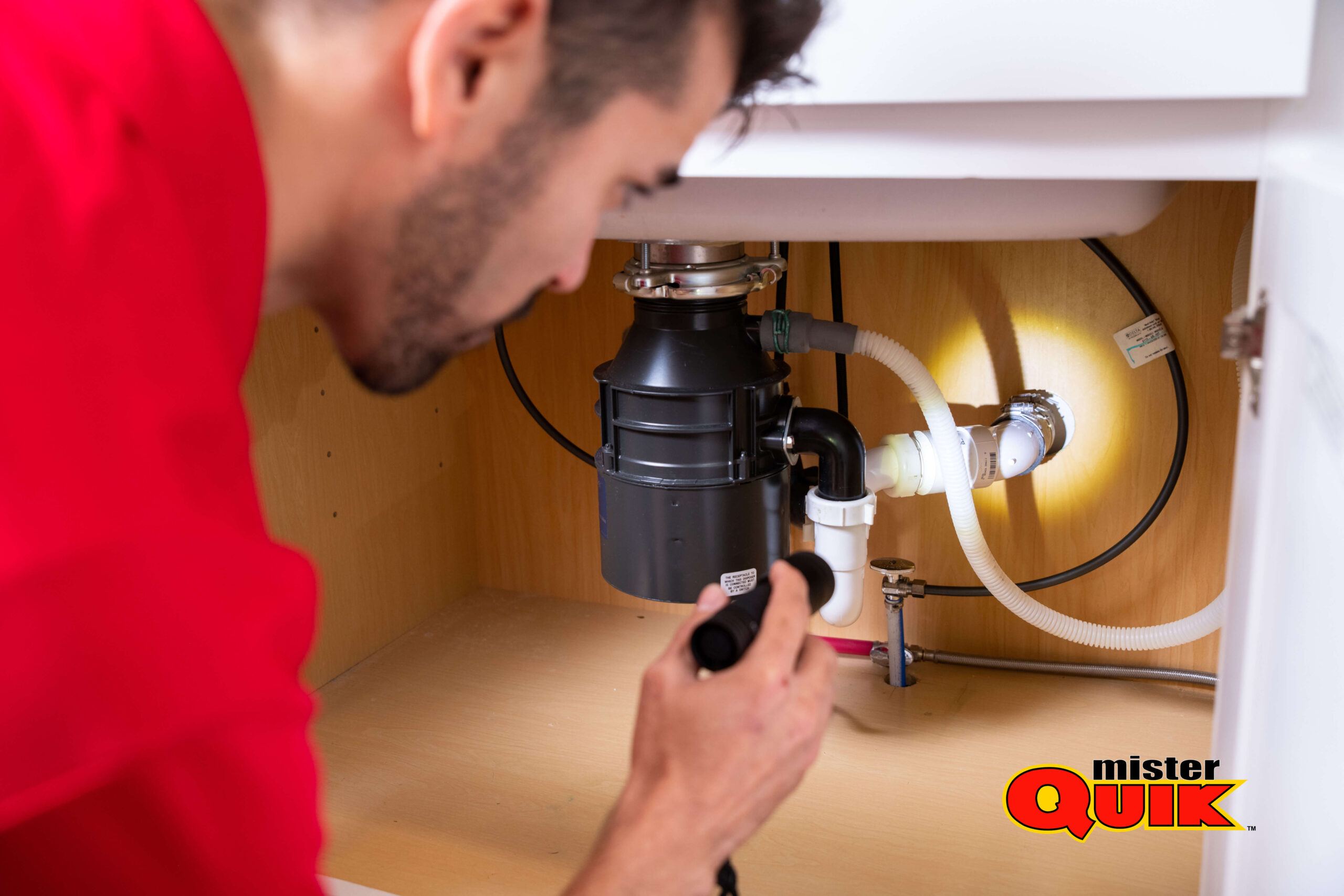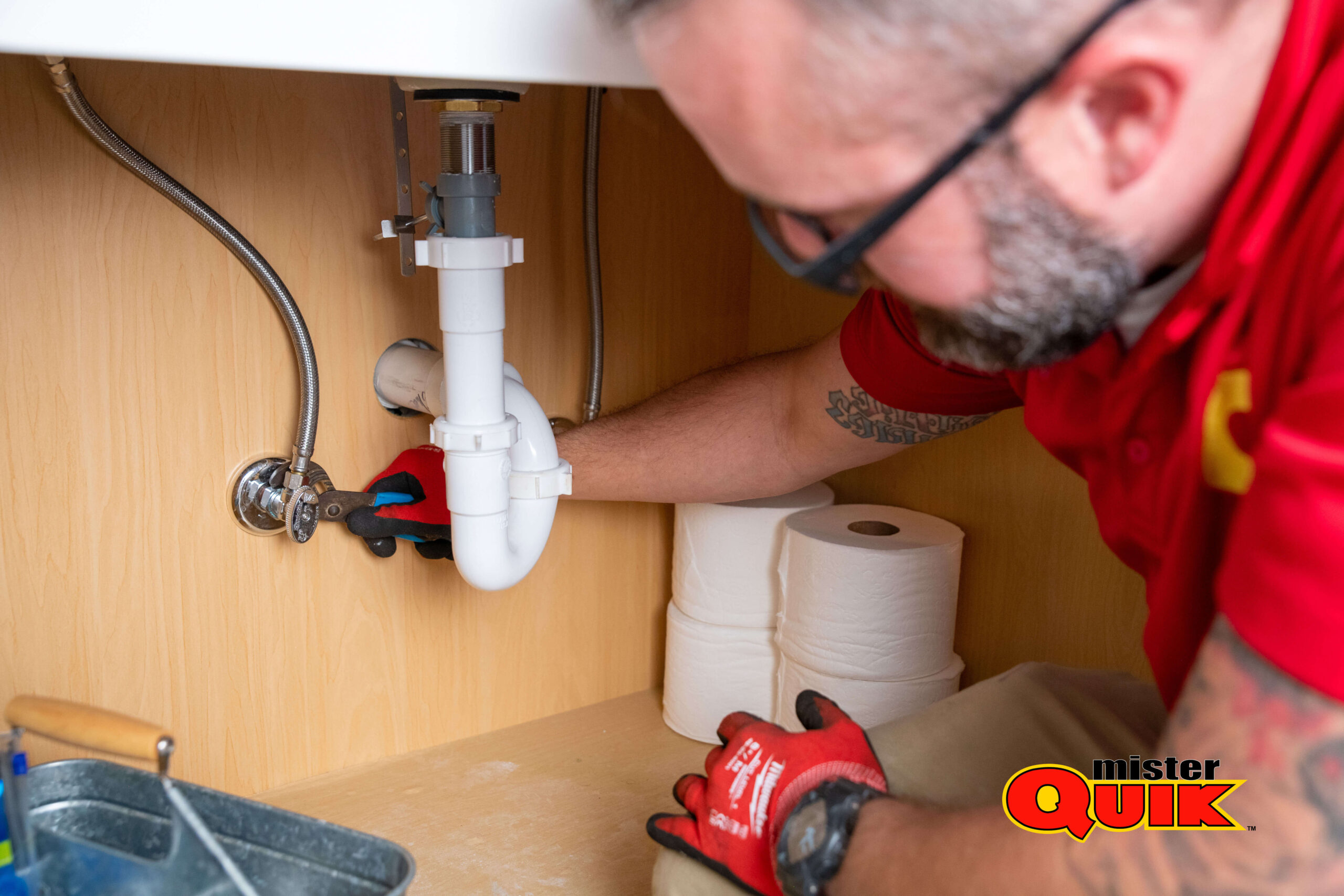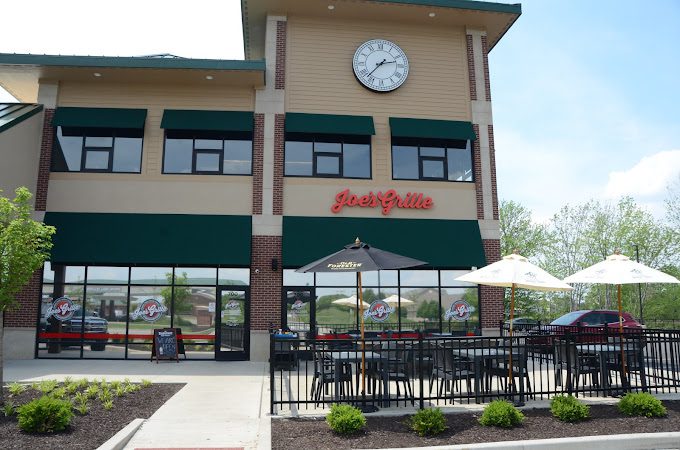Westfield Garbage Disposal Repair

Westfield Garbage Disposal Repair
Living in the City of Westfield, it’s essential to understand the do’s and don’ts of maintaining a garbage disposal system in your home. While these systems are convenient for disposing of kitchen waste, there are certain items that should never find their way down the disposal. Being aware of these items can help you avoid potential issues and costly repairs down the line.
Things You Ought Never Place Down A Garbage Disposal:
- Grease and Oils:
- Pouring grease and oils down the disposal can lead to clogs and blockages.
- These substances solidify over time, causing a reduction in the disposal’s efficiency.
- Stringy Vegetables:
- Fibrous vegetables like celery and onion skins can get tangled in the disposal’s blades.
- This may result in jamming and potential damage to the disposal unit.
- Coffee Grounds:
- Coffee grounds can accumulate in the pipes, leading to blockages and unpleasant odors.
- Dispose of coffee grounds in the trash or compost them instead.
- Bones and Hard Materials:
- Garbage disposals are not designed to handle bones or hard materials.
- Attempting to grind these items can damage the disposal’s blades and motor.
- Eggshells:
- Despite common belief, eggshells can contribute to clogs due to their membrane lining.
- Dispose of eggshells in the trash or use them for compost.
What Happens If You Place These Items Down A Garbage Disposal:
- Clogs and Blockages:
- The accumulation of grease, fibrous materials, and hard substances can lead to clogs.
- This can result in slow drainage, foul odors, and potential damage to the disposal.
- Blade Damage:
- Grinding bones, hard materials, or stringy vegetables can damage the disposal’s blades.
- This damage may lead to inefficiency, loud noises, and the need for costly repairs.
- Motor Overload:
- Continuous disposal of items like coffee grounds and excessive grease can overload the disposal’s motor.
- This may cause the motor to burn out, requiring replacement.
Maintaining a garbage disposal system in your Westfield home involves being mindful of what goes down the drain. Avoiding items such as grease, stringy vegetables, coffee grounds, bones, and eggshells can help ensure the longevity and efficiency of your disposal. By following these guidelines, you’ll not only prevent potential damage but also contribute to a smoother and more trouble-free kitchen experience.
Signs Your Garbage Disposal Isn’t Working
Living in the City of Westfield, it’s essential to maintain the appliances in our homes, including the garbage disposal system. Understanding the signs of a malfunctioning garbage disposal can save you from potential plumbing issues and costly repairs. Even if you have no prior experience with garbage disposals, recognizing these signs will empower you to take timely action and ensure the smooth functioning of this crucial kitchen appliance.
If you notice grinding, clanking, or humming sounds coming from your garbage disposal, it may indicate a mechanical issue. Unusual noises can suggest a jammed impeller or damaged components that require attention.
A slow-draining garbage disposal could be a sign of clogs or insufficient grinding. This may be due to accumulated food debris, and addressing it promptly can prevent further complications.
Persistent bad smells emanating from the garbage disposal may indicate a buildup of food particles and bacteria. Regular cleaning is crucial to prevent odors and maintain a hygienic kitchen environment.
Water pooling under the sink or around the garbage disposal is a clear indication of a potential leak. It could result from damaged seals, loose connections, or corrosion, and immediate inspection is necessary to avoid water damage.
Use a flashlight to inspect the disposal for any visible jams. If you find any foreign objects obstructing the impeller, turn off the power and use pliers or tongs to remove them.
Many disposals have a reset button located on the bottom. If your disposal stops working, press the reset button to see if it resolves the issue.
Always run cold water when using the garbage disposal to help solidify grease and move debris through the system. This can prevent clogs and keep the disposal operating efficiently.
Grinding ice cubes can help sharpen the blades and dislodge any stuck debris. Drop a few ice cubes into the disposal and run it with cold water to maintain optimal performance.
Maintaining a well-functioning garbage disposal is vital for a smoothly running kitchen in the City of Westfield. By staying vigilant for signs such as unusual noises, slow draining, foul odors, and leaks, you can address issues promptly. Armed with simple troubleshooting tips like checking for jams, resetting the disposal, running cold water, and using ice cubes, you can ensure your garbage disposal operates efficiently, preventing potential problems and prolonging its lifespan. Regular maintenance and attention to these signs will contribute to a more seamless and trouble-free kitchen experience.
The power to your garbage disposer will usually be interrupted, meaning that the disposer has either broken or has been overloaded, causing its reset switch to trip to prevent damage to the unit. In many cases, you can resolve this issue yourself. Start by verifying that the garbage disposal unit is plugged in.
You can replace the part, but you may be better off replacing the entire unit, as seals typically start to break with old age. A clogged garbage disposal simply needs to be fixed rather than replaced. You can try unclogging the unit on your own, or seek help by a professional at Mister Quik home Services.
Often, the easiest way to fix a garbage disposal is to push the reset button on the bottom of the disposal and try it again. When the reset button doesn’t work, the most common problems include electrical system issues, disposal jams, drain pipe clogs, or faulty seals in the mounting, hoses, or pipe connections.
Though you can often repair a garbage disposal that simply needs a bolt tightened or a seal swapped out, the whole unit will likely need to be replaced if an inspection reveals cracks. These cracks often appear as a garbage disposal ages and are a major sign that it’s time to replace your existing unit.
A jammed garbage disposal is one of the top reasons to call a plumber, but should you justify the cost? The answer is yes. As long as there isn’t any structural damage to the unit, the disposal should work like new once a plumber fixes it.
Common Garbage Disposal Problems
Living in the City of Westfield, it’s crucial to be well-informed about common garbage disposal problems to ensure a smooth and efficient waste management system in your home. Garbage disposals play a pivotal role in keeping kitchens clean and functional, but like any household appliance, they can encounter issues over time. Let’s explore the typical problems you might encounter with your garbage disposal and understand how to address them effectively.

Common Garbage Disposal Problems:
- Clogging: One of the most prevalent issues is clogging, often caused by disposing of items like grease, fibrous vegetables, or large chunks of food. This can lead to slow drainage and unpleasant odors. To prevent clogs, avoid putting these items down the disposal and run cold water while using it.
- Jamming: Garbage disposals can jam when foreign objects, such as utensils or hard food particles, get stuck in the blades. If your disposal stops working, turn off the power, locate the reset button underneath, and try using an Allen wrench to manually rotate the blades. Always exercise caution and never put your hand down the disposal.
- Leakage: Over time, the seals and connections in a garbage disposal may wear out, leading to leaks. Inspect the unit for any visible water and tighten loose connections if identified. If leaks persist, it may be necessary to replace faulty components or seek professional assistance.
- Unpleasant Odors: Accumulated food residue and lack of proper cleaning can result in foul smells emanating from the disposal. Regularly clean the unit by grinding ice cubes, lemon peels, or baking soda to eliminate odors. Running cold water while the disposal is in use can also help prevent unpleasant smells.
Understanding common garbage disposal problems is essential for City of Westfield residents looking to maintain a functional kitchen environment. By being proactive in preventing issues like clogs, jams, and leaks, you can extend the lifespan of your garbage disposal and keep your kitchen running smoothly. Remember to follow proper maintenance practices, avoid disposing of problematic items, and seek professional assistance if you encounter persistent problems. Being informed and taking preventive measures will contribute to a hassle-free and efficient waste disposal system in your home.
What Do You Do When Your Garbage Disposal Stops Working?
Living in the City of Westfield, it’s essential to be well-prepared for household inconveniences, especially when it comes to your garbage disposal system. If you find yourself facing the dilemma of a malfunctioning garbage disposal, it’s crucial to have a basic understanding of potential issues and their solutions. In this guide, we’ll provide you with useful information on troubleshooting and resolving problems with your garbage disposal, helping you navigate through common challenges.

Check for Power Supply: Ensure that the garbage disposal is plugged in and that there is power reaching the unit. Sometimes a simple power reset can solve the issue. Use the Reset Button: Most garbage disposals come equipped with a reset button. Press it to see if it resolves the problem. This button is often located at the bottom of the disposal unit. Inspect for Blockages: A common cause of malfunction is a clog or blockage in the disposal. Use a flashlight to look for foreign objects and clear any debris that might be obstructing the blades.

Jamming of Blades: If you hear a humming sound but the disposal isn't working, it might be jammed. Use an Allen wrench to manually rotate the blades and dislodge any obstruction. Leakage: If you notice water leaking from the disposal, check for loose connections or worn-out seals. Tighten connections or replace seals as needed. Unusual Noises: Grinding or metallic noises can indicate damaged components. It's advisable to turn off the disposal immediately and seek professional assistance to avoid further damage.

If the troubleshooting steps don't resolve the issue. Persistent leaks or strange noises. Unpleasant odors despite cleaning efforts. Signs of electrical problems or a burning smell.
In the City of Westfield, a malfunctioning garbage disposal can disrupt your daily routine. By familiarizing yourself with troubleshooting steps and potential solutions, you can address common issues efficiently. Remember, regular maintenance and careful use can prevent many problems. If the problem persists or if you encounter complex issues, seeking assistance from a professional is the best course of action to ensure a properly functioning garbage disposal system in your home.
If My Garbage Disposal Suddenly Stops Working What Should I Do Before Calling For Service?
Living in the City of Westfield, it’s important to be prepared for unexpected issues, such as your garbage disposal suddenly ceasing to work. While it can be a frustrating situation, there are several steps you can take before reaching out to a professional service. Understanding the basics of troubleshooting your garbage disposal system can save you time and money. Here’s a comprehensive guide on what to do when your garbage disposal stops working.
Troubleshooting Steps:
- Check for Power: Ensure that the garbage disposal unit is plugged in and that the circuit breaker hasn’t tripped. Sometimes, a simple power issue may be the cause of the problem.
- Use the Reset Button: Most garbage disposals have a reset button located on the bottom of the unit. Pressing this button can reset the motor and resolve minor malfunctions.
- Inspect for Jammed Objects: Turn off the disposal and check for any foreign objects, such as utensils or large pieces of food, that may be causing a jam. Use pliers or tongs to safely remove any obstructions.
Proper Operation Guidelines:
- Avoid Overloading: To prevent future issues, avoid overloading the disposal with large quantities of food scraps. Dispose of small amounts at a time, allowing the unit to process the waste efficiently.
- Run Cold Water: Always run cold water while using the garbage disposal and continue for a few seconds after turning it off. This helps flush out any remaining debris and keeps the blades clean.
- Use Citrus Peels: Grinding small portions of citrus peels in the disposal can help eliminate odors and keep the unit smelling fresh. This is a simple maintenance step that contributes to the longevity of your garbage disposal.
When to Call for Professional Service:
- Persistent Issues: If you’ve tried the troubleshooting steps and your garbage disposal still doesn’t work, it may be time to seek professional assistance.
- Unusual Noises: Strange or loud noises during operation can indicate internal problems. Professional service can diagnose and address these issues effectively.
- Leakage: Any signs of leakage from the disposal unit should prompt an immediate call to a professional. Water damage can lead to more significant problems if not addressed promptly.
Before calling for professional service in Westfield, take the time to troubleshoot your garbage disposal using the steps outlined above. Understanding the basics of proper operation and maintenance can prevent common issues and prolong the life of your disposal unit. However, if problems persist or if you encounter more complex issues, don’t hesitate to contact a reliable professional service to ensure a swift and effective resolution.
Indianapolis Garbage Disposal Installation
If you’re considering installing a garbage disposal system in your Indianapolis home, it’s essential to understand the step-by-step process involved in a professional installation. A garbage disposal not only enhances kitchen convenience but also contributes to efficient waste management. In this guide, we will walk you through the comprehensive process, ensuring you are well-informed before embarking on this home improvement journey.
A certified technician will conduct a thorough assessment of your kitchen plumbing and electrical systems. They will inspect the available space under the sink to determine compatibility with the chosen garbage disposal unit.
Based on the assessment, the technician will recommend a suitable garbage disposal unit that aligns with your kitchen's requirements. Factors such as motor power, size, and noise level will be considered to ensure optimal performance.
The technician will begin by shutting off the electrical and plumbing systems to ensure safety during installation. Removal of the existing plumbing connections and disconnection of the sink from the drain lines will follow.
The chosen disposal unit will be securely mounted beneath the sink, ensuring proper alignment and stability. A mounting assembly will be used to attach the disposal unit to the sink, preventing any movement during operation.
The plumbing connections will be reconfigured to accommodate the new garbage disposal. Wiring the disposal unit to the electrical supply will be done in compliance with local codes, ensuring safety and functionality.
The technician will conduct a series of tests to ensure the proper functioning of the garbage disposal. Any adjustments required for optimal performance, such as balancing the blades or addressing noise issues, will be made.
Investing in a professional garbage disposal installation in your Indianapolis home not only guarantees a hassle-free process but also ensures the longevity and efficiency of the system. With careful consideration of your kitchen’s layout and specific requirements, a certified technician will guide you through each step, from the initial assessment to the final testing phase. By opting for professional installation, you can enjoy the benefits of a reliable garbage disposal system that seamlessly integrates into your daily kitchen routine.
Troubleshoot Checklist:
- Check the power supply and ensure the disposal is plugged in.
- Press the reset button located on the bottom of the unit.
- Use a flashlight to look for visible jams or obstructions.
- Safely remove any foreign objects with pliers or tongs.
- Avoid overloading the disposal with large quantities of food.
- Always run cold water while using the disposal and afterward.
- Grind citrus peels to eliminate odors and maintain freshness.
- This simple maintenance step contributes to the disposal’s longevity.
- If troubleshooting steps don’t resolve the issue.
- Persistent issues such as unusual noises or leaks require professional attention.








